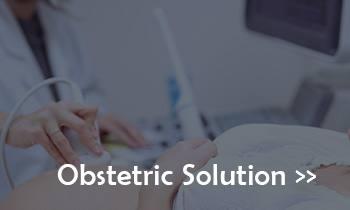Doctors Profile...
Educational Qualification
- Passed Madhyamik in 1977, in 1 st Division from Scottish Church Collegiate School.
- Passed Higher Secondary Examination in 1979 in 1 st Division from St. Xaviers' College.
- Passed MBBS from Medical College Calcutta in 1985 under Calcutta University.
- Passed DGO from Medical College, Calcutta in 1990 under Calcutta University.
- Passed MD in Obstetrics and Gynaecology from Guwahati University in 1992.
- Passed DNB I in Obstetrics & Gynaecology in 1988.

Experience
- Worked as a Resident in King Georges' Medical College for 3 months in 1989.
- Worked as a Medical Officer in Indian Airlines for 6 months in 1989.
- Worked as a specialist Obstetrician and Gynaecologist in Ramkrishna Sarada Mission Matri Bhaban from 1993 to 1999.
Presently working
- Peerless Hospital, Panchasayar Road, Kolkata
- Neotia Bhagirathi Woman and Child Care Centre, Rawdon Street, Kolkata
- GD Hospital & Diabetes Institute, Lenin Sarani, Kolkata
- Calcutta Medical Centre, Kolkata
- Belle Vue Clinic, Kolkata
- Woodlands Multispeciality Hospital Ltd., Alipore, Kolkata
Formerly Worked :
As a Consultant Obstetrician & Gynaecologist & Infertility specialist in Institute of Reproductive Medicine, Salt Lake since 1993.
Practicing
Obstetrics, Gynaecology and Infertility independently since 1992.
Working Experience
- IUI
- Chorionic Villous Biopsy
- Amniocentesis
- Laparoscopic Gynaecological Surgery
- Bad Obstetric History(BOH/RPL) Unit
Services
Obstetric Solution -
An advanced, full-body simulator covering all stages of labor and birth. Available in both manual and automatic delivery modes?
Obstetrical care is a term used to describe the management of both normal and complicated pregnancy as well as the delivery and postpartum periods. Because pregnancy is one of the most important parts of a woman's life, it is essential to have the proper medical care to have a healthy pregnancy.
Obstetricians are trained to provide medical care during pregnancy (antenatal care), labour and birth, after the birth (postnatal care). Obstetricians have the skills to manage complex or high-risk pregnancies and births, and can perform interventions and caesareans.
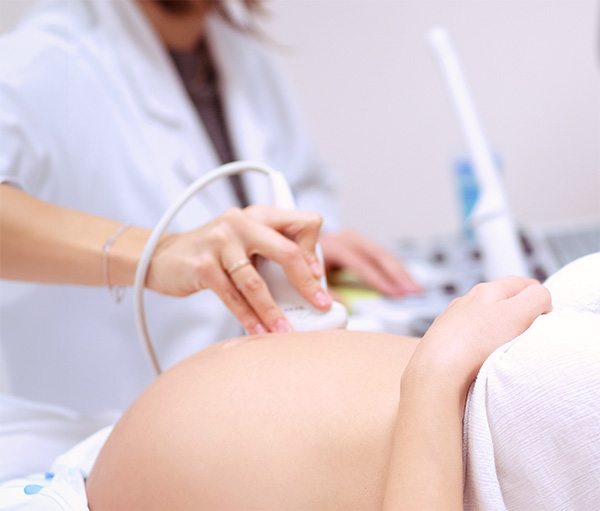
Laparoscopy Surgery -
What is laparoscopic surgery?
Laparoscopic surgery also referred to as minimally invasive surgery describes the performance of surgical procedures with the assistance of a video camera and several thin instruments. During the surgical procedure, small incisions of up to half an inch are made and plastic tubes called ports are placed through these incisions. The camera and the instruments are then introduced through the ports which allow access to the inside of the patient.
The camera transmits an image of the organs inside the abdomen onto a television monitor. The surgeon is not able to see directly into the patient without the traditional large incision. The video camera becomes a surgeon's eyes in laparoscopy surgery, since the surgeon uses the image from the video camera positioned inside the patient's body to perform the procedure.
Benefits of minimally invasive or laparoscopic procedures are- less post operative discomfort since the incisions are much smaller
- quicker recovery times
- shorter hospital stays
- earlier return to full activities
- much smaller scars
- there may be less internal scarring when the procedures are performed in a minimally invasive fashion compared to standard open surgery.
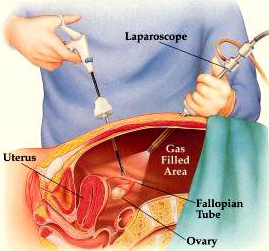
BOH(Bad Obstetric History)/RPL -
During the past decade, tremendous strides have been made in determining foetuses at risk of an adverse obstetric outcome. The term 'bad obstetric history or BOH' is applied to mothers in whom a previous poor obstetric outcome is likely to have a bearing on the prognosis of her present pregnancy. The contributory factors may be demographic, social, medical, psychological, behavioral, obstetric or environmental.
Prenatal care may be better organized if risk assessment could be instituted for all pregnant women. The risk assessment should be formal using standardized data sheets and investigative tests, and dynamic to permit the recognition of emerging problems during the course of pregnancy and enable individualization of treatment to meet the patient's individual needs. Special attention should be given to these problems and attempts made to correct the same.
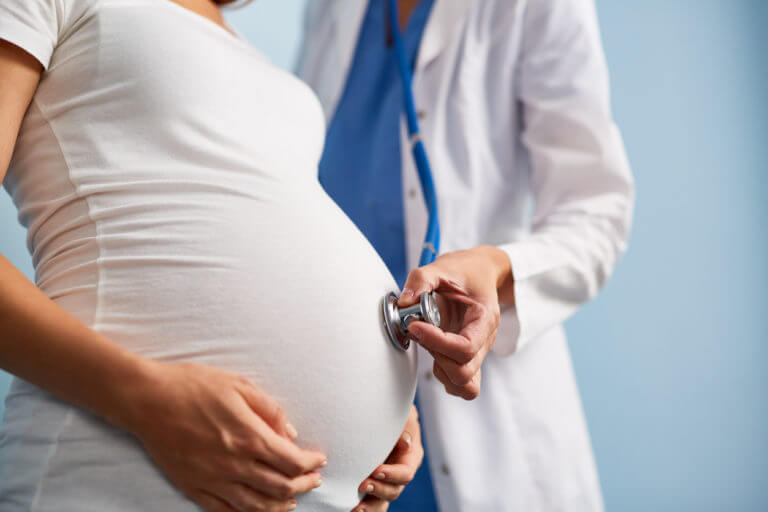
FAQ -
What is laparoscopy?
Laparoscopy is an operation done to look inside your abdomen with a thin instrument called a laparoscope. Through small holes in your tummy, the doctor looks, examines and operates (if needed) without making large cuts.
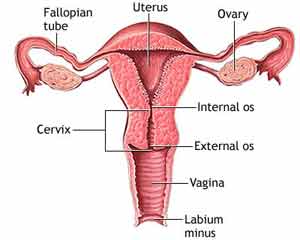
What are the advantages of a laparoscopic surgery?
In conventional surgery a long incision is made to gain entry into the abdominal cavity and operate. This result in increased post-operative pain, longer stay in hospital, delayed recovery, long and ugly scars, higher chance of wound infection and a higher chance of hernia. The incidence of all these are considerably reduced by a laparoscopic surgery.
What is to be expected after a laparoscopy surgery?
There may be some discomfort in the abdomen for a day or two after laparoscopy due to the presence of some carbon dioxide gas. If the surgery is uneventful, feeding can be started on the same day once the patient has recovered completely from the effects of anesthesia. Before you go home you will be given advice about caring for the surgical wounds and when you will need to come back for a follow-up appointment or to have stitches removed. Complete recovery may take longer if any surgery has been carried out. It is important to follow the advice of your surgeon about physical activity, rest and returning to work.
What is a hysteroscopy operation?
A hysteroscopy is an operation done to evaluate the inside of the uterine cavity and if necessary operate on the same.
How exactly is it done?
A narrow telescope with an illuminated lens at its end is introduced in the uterine cavity through the cervix or neck of the womb. For clear vision, the uterine cavity needs to be distended, which is done with gas or some fluid.
Is it a major surgery?
Yes, operations performed through a hysteroscope are major surgeries. Complications may range from anesthetic problems to fluid overload issues. However, hysteroscopy for diagnostic purposes may be performed on an outdoor basis.
When may a hysteroscopy operation be needed?
Hysteroscopy for diagnostic purposes is usually performed to assess the cause of sub fertility or find out the cause of abnormal bleeding. It may also be done to remove polyps, resect septae, release adhesions and retrieve lost IUCDs.
What are ovaries ?
Ovaries are female organs, which are like testes in the males. There are two ovaries, right and left.
What are the functions of the ovaries ?
Ovaries produce eggs and female hormones, which are required for normal menses till 46 to 50 years of age. At this age, all eggs are finished and no more female hormones are produced. This results in menopause. The woman stops having menses even if she has an intact uterus.
What is HRT ?
HRT is Hormone Replacement Treatment. Women take this when there are no female hormones in the body. This can be prescribed after natural menopause or after surgical menopause.
What are the advantages of HRT ?
HRT reduces the hot flushes, night sweats, irritability and mood swings associated with menopause. It also reduces the risk of fracture among women after menopause.
How will I know that my menstrual bleeding is heavy?
30% women do not recognize heavy period bleeding. Passing of clots, prolonged bleeding for over a week and flooding are rough indicators of heavy bleeding. The most predictive indicator however is blood hemoglobin estimation. Normal values should be between 12 and 14gm%.

When does heavy bleeding need treatment?
When heavy bleeding is significant enough to cause anemia or severely interferes with one's quality of life it should be treated. Abnormal heavy bleeding may need investigation and treatment when suspected to be associated with malignancy.
What could be the causes for heavy bleeding?
Hormonal imbalance is one of the most common reasons for heavy bleeding. Besides this, tumors of the uterus, infections, endometriosis, malignancies could also cause heavy bleeding.


